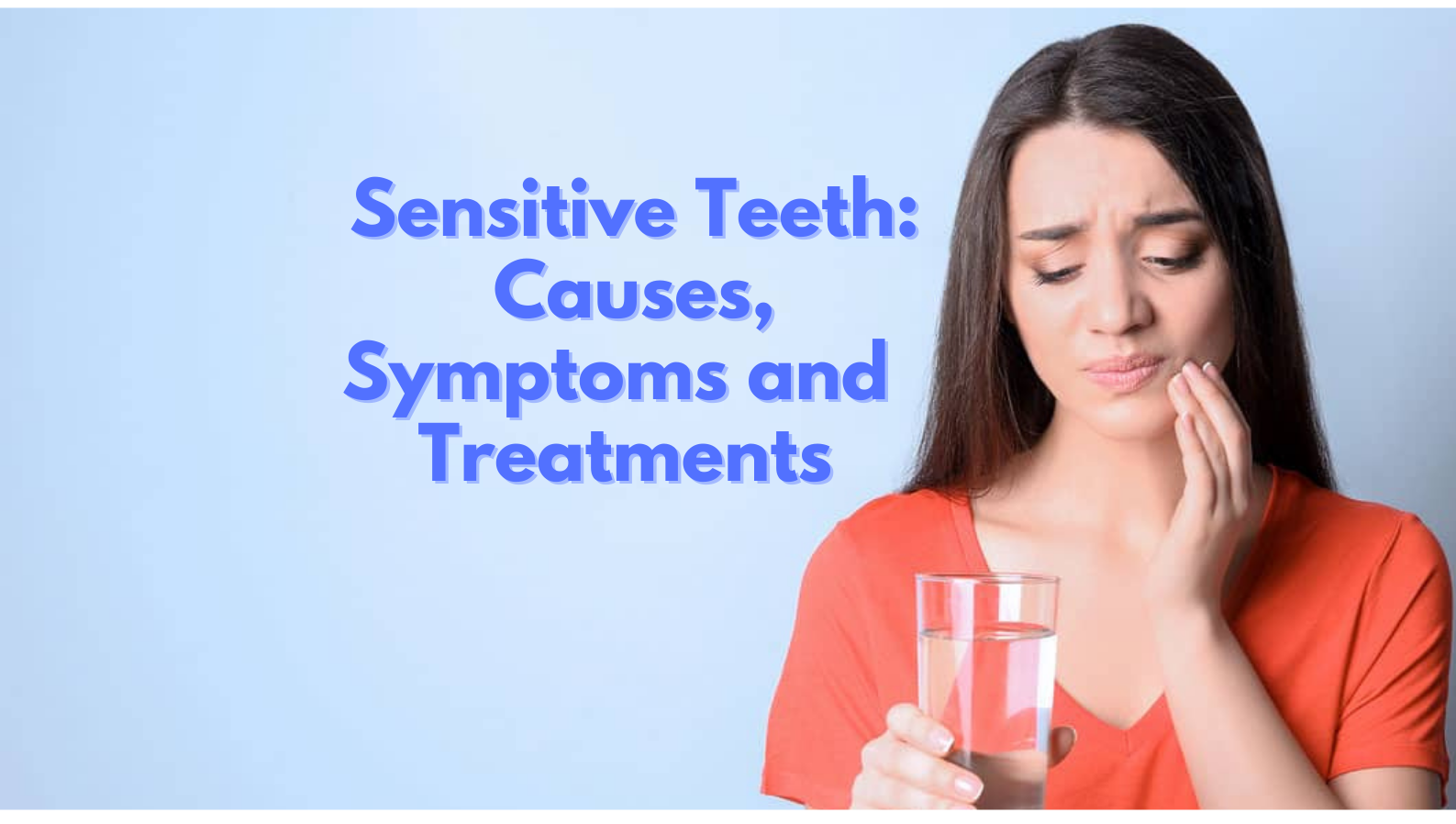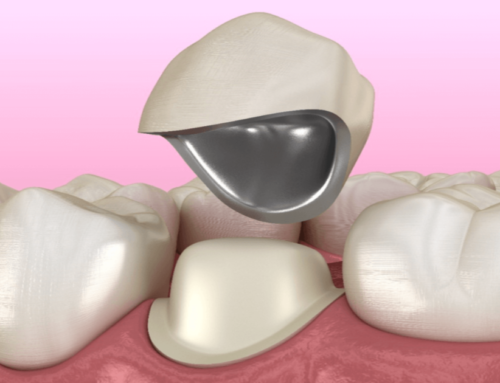The following article focuses on tooth sensitivity, detailing the different causes and symptoms of sensitive teeth and the essential treatments required in order to decrease tooth sensitivity.
TEETH SENSITIVITY
Teeth sensitivity is the discomfort experienced due to hot, cold, sweet and sour foods and drinks or even by breathing cold air. The resulting pain can be sudden, sharp and can even shoot deep into the tooth’s nerve endings.
This happens when the underlying layer of your teeth, known as the dentin, becomes exposed as the result of receding gum tissue. The roots which are not covered by the enamel, contain thousands of tubules leading to the pulp. These dentinal tubules let the stimuli (hot, cold or sweet food) reach the nerve in your tooth, thus resulting in pain.
Tooth sensitivity can either be temporary or chronic, and it can affect either one or several teeth or all the teeth in an individual. The number of causes may vary but most cases are easily treated with a change in the patient’s oral regimen.
Causes for tooth Sensitivity
1.Hard brushing
Brushing too hard or using a hard bristled toothbrush can wear down the enamel and expose the dentin. It can also cause gum recession.
2.Gum recession
The root surface is exposed when the gums move away from the teeth because of underlying conditions such as periodontitis.
3.Gum disease
Inflamed and sore gums can cause sensitivity due to the loss of supporting ligaments that can expose the root surface which leads directly to the nerve of the tooth.
4.Cracked teeth
Chipped or broken teeth can be filled with bacteria from plaque and can enter the pulp, causing inflammation.
5.Teeth grinding
Clenching or grinding of the teeth wears down the enamel and can expose the dentin.
6.Using tooth products that contain baking soda and peroxide
The usage of toothpastes or tooth whitening products that contain baking soda and peroxide are the major contributors of tooth sensitivity.
7.Age
Tooth sensitivity is commonly witnessed in age groups between 25 to 30.
8.Plaque buildup
The buildup of plaque on root surfaces can cause tooth sensitivity.
9.Mouthwash use
Some mouthwashes contain acids that can worsen your tooth sensitivity if you have exposed dentin. These acids can further damage the dentin layer of the tooth. Prolonged use of such mouthwashes is a contributing factor to teeth sensitivity.
10. Acidic foods
Regular consumption of foods with high acid content such as citrus fruits, tomatoes, pickles and tea can cause enamel erosion thus leading to tooth sensitivity.
11. Routine dental procedures
Teeth cleaning, root planning, crown placement and tooth restoration can cause tooth sensitivity. However, sensitivity caused by such procedures is temporary and usually disappears in about four to six weeks.
SYMPTOMS OF TOOTH SENSITIVITY
- Sensitiveness to temperature variations
- Unpleasant reactions such as pain and discomfort due to hot and cold foods and drinks
- Pain during brushing or flossing
- sensitivity to sweet and acidic foods and beverages
HOW TO REDUCE TOOTH SENSITIVITY
- Maintain proper oral hygiene: Follow proper brushing and flossing techniques to thoroughly clean all parts of the teeth and mouth.
- Use a soft-bristled toothbrush: This will reduce toothbrush abrasion on the tooth surface and less irritation on the gums. Brush gently around the gum line so as to not remove gum tissue.
- Using a desensitizing toothpaste: There are several brands of toothpaste that help with tooth sensitivity. By using different brands, you can ultimately find one that works for you.
- Watching your diet: Frequent consumption of unhealthy foods rich in acids can eventually wear down your enamel and expose the dentin. They may also play a hand in aggravating tooth sensitivity and the resulting pain.
- Using fluoridated dental products: Regular use of fluoridated mouth rinse can decrease tooth sensitivity.
- Avoid grinding your teeth: In case you grind or clench your teeth at night, use a mouthguard.
- Regular visits at the dentist: Visit your dentist every six months for professional tooth cleaning, oral hygiene instructions and fluoride treatments.
In addition to the above suggestions, there are certain dental procedures that can help in reducing tooth sensitivity. They are:
- Bonding (white fillings) to cover exposed root surfaces.
- Fluoride varnishes that are applied on exposed root surfaces.
- Dentin sealers applied on exposed root surfaces.
There are underlying medical conditions that can cause tooth sensitivity. In such cases, it is important to treat them before they can wear down the enamel and damage your teeth. Some of these diseases include GERD which can be treated with acid reducers and bulimia which should be treated under a psychiatrist. Receding gums can be avoided by brushing more gently and by maintaining proper oral hygiene. In cases of extreme sensitivity due to gum recession, the dentist might recommend a gum graft, in which tissue from the palate is placed over the root in order to protect the tooth.





